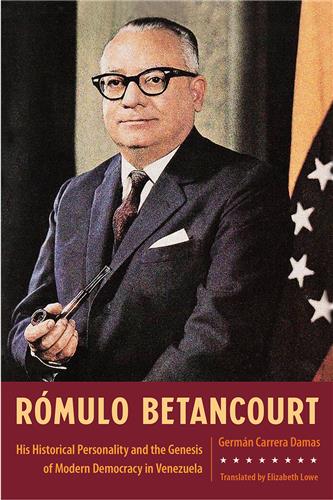Immigration and National Identities in Latin America
Edited by Nicola Foote and Michael Goebel
Paper: $32.00
"This groundbreaking study examines the connection between what are arguably the two most distinguishing phenomena of the modern world: the unprecedented surges in global mobility and in the creation of politically bounded spaces and identities."--Jose C. Moya, author of Cousins and Strangers
"An excellent collection of studies connecting transnational migration to the construction of national identities. Highly recommended."--Luis Roniger, author of Transnational Politics in Central America
"The importance of this collection goes beyond the confines of one geographic region as it offers new insight into the role of migration in the definition and redefinition of nation states everywhere."--Fraser Ottanelli, coeditor of Letters from the Spanish Civil War
"This volume has set the standard for future work to follow."--Daniel Masterson, author of The History of Peru
Between the mid-nineteenth and mid-twentieth centuries, an influx of Europeans, Asians, and Arabic speakers indelibly changed the face of Latin America. While many studies of this period focus on why the immigrants came to the region, this volume addresses how the newcomers helped construct national identities in the Caribbean, Mexico, Argentina, and Brazil.
In these essays, some of the most respected scholars of migration history examine the range of responses--some welcoming, some xenophobic--to the newcomers. They also look at the lasting effects that Jewish, German, Chinese, Italian, and Syrian immigrants had on the economic, sociocultural, and political institutions. These explorations of assimilation, race formation, and transnationalism enrich our understanding not only of migration to Latin America but also of the impact of immigration on the construction of national identity throughout the world.
Nicola Foote, professor of history and chair of the Department of Social Sciences at Florida Gulf Coast University, is coeditor of Military Struggle and Identity Formation in Latin America. Michael Goebel, professor of history at Freie Universität Berlin, is the author of Argentina’s Partisan Past.
Contributors: Jürgen Buchenau | Jeane DeLaney | Nicola Foote | Michael Goebel | Steven Hyland Jr. | Jeffrey Lesser | Kathleen López | Lara Putnam | Raanan Rein | Stefan Rinke | Frederik Schulze
- Sample Chapter(s):
- Table of Contents
- Excerpt
The authors present sophisticated arguments that contribute to the understanding of race, ethnicity, and national identity in Latin America, as well as broader discussions of nation-building projects.
--CHOICE
Magnificent and illuminating. . . .the volume reveals the missing elements in studies of race and mestizaje in Latin America. . . .[and] presents compelling evidence to support the importance of timing in historical processes. . . .We can now also see the extent to which Latin America has long been a continent on the move, in which displacement and rural-urban migration have, perhaps even as much as immigration from other continents, shaped the histories of peoples, states and nations.
--H-net reviews
Refreshing. . . . Successfully places Latin America on the migratory map and clearly demonstrates the complex nature of nationalism and identity formation in the Americas.
--Hispanic American Historical Review
Significantly adds to the scant literature on the interplay of immigration, nation building and nationalism. . . . Thought-provoking and stimulating.
--Journal of Latin American Studies
Breaks new ground by presenting the topics of assimilation, race formation and transnationalism to support an overall argument about how the development of Latin American nations was closely linked to global migratory currents.
--Bulletin of Latin American Research












